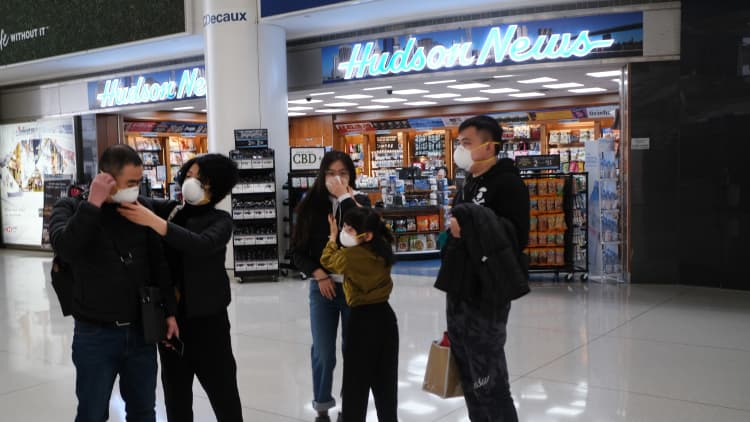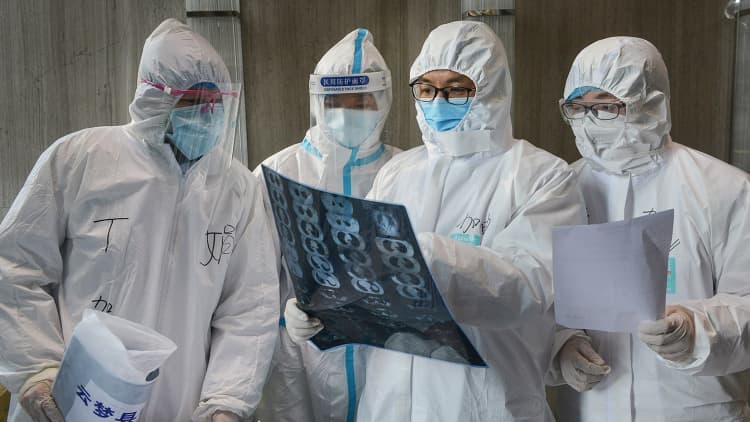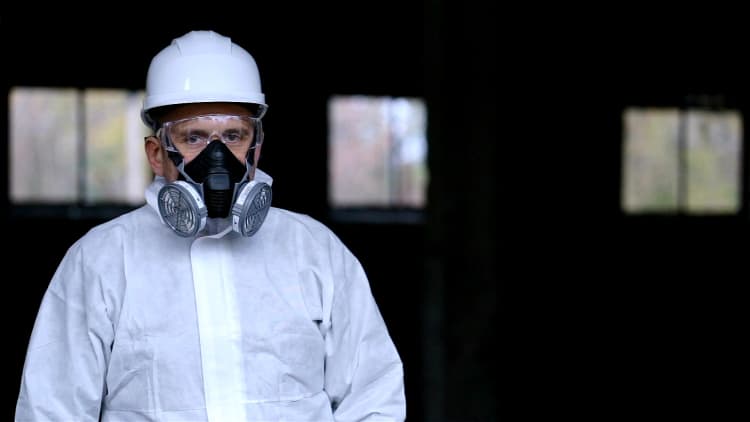The spread of coronavirus and cutbacks in domestic and international airline schedules continue to raise concerns and insecurities for those with travel plans for the next few weeks and months.
If your airline cancels your flight, your employer restricts business travel or an organization cancels its scheduled conference, your decision about whether to go or stay home will be made for you.

But if you're in the wait-and-see mode or decide to pack your bags and go, here's what medical experts say about avoiding germs while flying.
Before you fly
During normal times, airports and airplanes are germ-ridden places. So experts say now is the time to pay extra attention to the health and hygiene rules you likely practice anyway, such as washing your hands often and packing items like hand sanitizer, tissues and extra supplies of medications. You may also want to make copies of your health insurance paperwork before flying.
Travelers hitting the road in the next few days, weeks or months should double check the Centers for Disease Control and Prevention website for up-to-date information about travel advisories and risk assessment by country and think through contingency plans before leaving home.
"Have someone available in case you need help with emergency travel plans or need to get home quickly," said Jonathan Fielding, professor of public health and pediatrics at University of California, Los Angeles and chair of the U.S. Task Force on Community Preventive Services, established by the Department of Health and Human Services.
But keep in mind that as the virus spreads "you never know when a city you're in or about to travel to is going to be sealed off, flights cancelled, or travelers quarantined," he said.
At the airport
At airports, germs can linger on the screens at self-service check-in kiosks, on the bins and belts at security checkpoints, on escalator handrails, food court tables, in restrooms and gate seating areas.
Generally, to avoid germs at the security checkpoint, you should never walk barefoot though the metal detector, said Charles Gerba, a microbiologist and professor at the University of Arizona. Place your shoes on the belt, not in a bin. Put whatever you can, including your jacket, your phone and the contents of your pockets, into your carry-on instead of into a bin. And take a moment use hand sanitizer in the post-security repacking area before rushing off to the food court or your gate.
Airports across the country say they are increasing the frequency of cleaning routines and the intensity of cleaning products at "high touch" areas in shuttle buses, washrooms, security checkpoints, food courts and other areas, adding hand sanitizer stations and taking other actions to keep passengers and employees healthy.
Denver International Airport is installing sanitary wipes in jet bridges to allow passengers to sanitize their seats on planes. And in a list of new protocols at Seattle-Tacoma International Airport, officials say more than 100 new hand sanitizers have been installed throughout the airport, with 100 more to be installed soon. Cleaning frequencies at high touch points have been increased and contractors are being equipped with hospital-grade disinfectant and wipes for faster response and cleaning.
But passengers should still take extra precautions. "Our studies have found that viruses can spread very rapidly via the hands because of the large number of surfaces that you touch," Gerba said. He advocates washing your hands often, using hand sanitizers with at least 60% alcohol and using disinfecting wipes on hard surfaces in airports.
And before your flight, "wait in the least crowded areas of the airport and try to stay at least six feet away from anyone else," said UCLA's Fielding, "And try to board the plane last, after the line has thinned, so you're not stuck waiting in a tight space with lots of other people as they board."
Avoiding germs on the plane
While many airlines are canceling flights and temporarily reducing schedules on some routes in response to COVID-19, they are also sharing details about increased cleaning routines and adjusted in-flight service routines on aircraft still flying.
On Wednesday, for example, American Airlines said it was enhancing cleaning procedures on international flights and aircraft that remain overnight at airports. "This move, which will touch the majority of our aircraft each day, includes a more thorough cleaning of all hard surfaces, including tray tables and armrests," the airline said in a statement.

On its blog, Alaska Airlines shared a video explaining how its airplanes get cleaned and noted that its crews are paying extra attention to sanitizing arm rests, seat belts, tray tables, overhead controls for air vents, light buttons and call buttons, and the interior and exterior handles to lavatories.
Despite the airlines' efforts, "I advise people to bring their own germicidal wipes to rub down the high touch surfaces, the armrest, meal tray and the button that makes your seat go back," said Paul Pottinger, infectious disease specialist at UW Medicine, the health-care system at the University of Washington in Seattle. "It's also mighty neighborly to offer one of those wipes to the person you're sitting next to."
Pottinger doesn't recommend the use of face masks for healthy travelers because he says there is very little evidence to support their effectiveness at keeping away respiratory viruses.
"If people like to use them though, that's OK, but I worry that they are so uncomfortable that a traveler may end up fiddling with the mask and actually increase the risk of getting sick by forcing them to touch their face, nose and mouth," he said.
And when it comes to the overhead air vent, the consensus is that having it blow air toward you is better than using it to blow air away.
"The air in the plane blower has been filtrated, which can remove more than 99% of dust and microbes in the air," said Fielding of UCLA. "By having the vent blow on you, you create an invisible air barrier around you that creates turbulence – simultaneously blocking any droplets that may have viruses within them and forcing them down to the ground."


